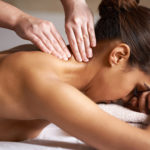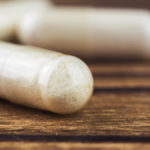Rotator Cuff Disorders

What are rotator cuff disorders?
The rotator cuff consists of four muscles and tendons that hold the arm in the shoulder socket. The rotator cuff surrounds the shoulder joint and provides it with strength and stability. Injury or damage to a rotator cuff can lead to inflammation in the bursa, a sac of tissue above each cuff. The inflammation can cause pain and loss of motion. According to American Academy of Orthopaedic Surgeons (AAOS) in 2008, two million adults in the United States sought treatment for rotator cuff injuries. Sometimes, the rotator cuff tendons can become inflamed leading to tendonitis, or torn.
What are the symptoms of rotator cuff injuries?
Not everyone with rotator cuff injuries has symptoms, but those that do occur include pain, weakness, restricted motion, a feeling of instability, all of which usually are worse in certain positions, such as reaching back to fasten a seat belt, or when you lie on the affected shoulder in bed at night. Symptoms can be worse when you raise your arm over your head, especially if you’re holding something heavy or when you engage in sports involving pitching, throwing, or swinging a tennis racquet or playing other racquet sports. You may also notice a crackling sensation when you move your shoulder in certain positions.
Rotator cuff tears can also stem from lessened blood supply to the area, which comes with age and can impair the natural healing process. And age-related bone spurs that develop on the acromion bone on top of your shoulder can lead to rotator cuff injuries if they rub on the tendon and ultimately weaken it so that it tears.
What causes rotator cuff injuries?
Most rotator cuff injuries stem from the effects of aging and deterioration of the cuff. These generally begin to occur after the age of 40 (similar injuries in young people are much more likely to be caused by accidents).
Rotator cuff tears occur on your dominant arm, although if you have one rotator cuff tear, you’re at increased risk of another on the opposite arm. The injuries often stem from the repetitive wear and tear of shoulder movement when playing the sports mentioned above or as a result of repetitive overhead motion required by jobs such as painting and carpentry.
How are rotator cuff injuries diagnosed?
Doctors can diagnose rotator cuff injuries on the basis of a patient’s medical history and a physical exam. In addition, an x-ray can reveal calcifications, arthritis or bone problems that can cause rotator cuff tears. An MRI scan is the usual way to diagnose tears in the rotator cuff, to identify areas of inflammation and help determine the size and character of a tear.
What is the conventional treatment for rotator cuff injuries?
Treatment for rotator cuff injuries can be as simple as rest, ice and heat and learning safer and more comfortable ways to use the shoulder. In addition, physical therapy may be recommended to help improve mobility and strengthen shoulder muscles. Anti-inflammatory medications (oral or administered by injection) may be prescribed for pain relief and to decrease inflammation.
If none of these measures help over the course of 6 to 12 months, surgery may be recommended. However, surgery may be indicated sooner if you have a rotator cuff tear larger than 3 centimeters, if you have significant shoulder weakness or loss of function, or if your injury was due to an accident. According to the AAOS 50 percent of patients improve without surgery although shoulder strength usually does not improve without surgery.
What therapies does Dr. Weil recommend for rotator cuff injuries?
Following an anti-inflammatory diet helps to reduce pain and inflammation associated with rotator cuff injuries. Following an anti-inflammatory diet involves removing or significantly limiting food that contribute to inflammation including processed foods containing hydrogenated fats (trans fatty acids) and animal sources of protein that are not organic and humanely sourced including dairy, eggs, pork, beef, and poultry. Increasing or adding naturally anti-inflammatory foods is another important part of this diet. These anti-inflammatory foods include wild cold-water fish (like salmon, small tuna, herring anchovies and herring), freshly ground flax seeds, walnuts, fortified eggs, and leafy green vegetables. In addition, turmeric, garlic and ginger are also anti-inflammatory in nature.
For bursitis related to rotator cuff injuries Dr. Weil recommends rest and the application of DMSO (dimethyl sulfoxide), a chemical made from wood pulp that penetrates the skin and promotes healing of pockets of inflammation. Use a 70 percent solution of DMSO and apply it to the affected area with absorbent cotton. Let it dry. Apply the solution three times a day for three days. If you don’t see any improvement, stop using it. If you do notice improvement, Dr. Weil advises cutting back to twice a day for three more days, then once a day for a final three days. After that, your body can continue healing on its own.
DMSO can cause a sensation of warmth or stinging and may give you an odd, garlic-like taste in the mouth. There’s no cause for concern about either of these reactions. DMSO will also dissolve synthetic fibers, so be careful not to get it on clothing or upholstery. You can buy DMSO at most health food stores. Dilute 100 percent or 90 percent solutions down to 70 percent with distilled water. The mixture will get hot; allow it to cool before using.
Taking high quality fish oil supplements (with low levels of mercury) containing 3000mg of EPA+DHA total can help to reduce inflammation. Use caution if you are taking aspirin, Plavix or Coumadin, as adding fish oil can potentially increase risk of bleeding.
As an alternative, Dr. Weil recommends acupuncture for symptomatic relief of the pain of bursitis. He regards acupuncture as much safer than anti-inflammatory drugs or injections of steroids.
In addition, Dr. Weil suggests taking two 500 mg capsules of powdered ginger once or twice a day. Ginger is an effective natural anti-inflammatory agent.
He recommends surgery for rotator cuff tears if other measures have failed.









